Summary of “Crime and Punishment” by Dostoevsky
Article menu:
- The characters of “Crime and Punishment” in the context of the content of the novel
- The content of Dostoevsky’s novel: chapter layout
- Part 1
- Chapter 1
- Chapter 2
- Chapter 3
- Chapter 4
- Chapter 5
- Chapter 6
- Chapter 7
- Part 2
- Chapter 1
- Chapter 2
- Chapter 3
- Chapter 4
- Chapter 5
- Chapter 6
- Chapter 7
- Part 3
- Chapter 1
- Chapter 2
- Chapter 3
- Chapter 4
- Chapter 5
- Chapter 6
- Part 4
- Chapter 1
- Chapters 2 and 3
- Chapter 4
- Chapter 5
- Chapter 6
- Part 5
- Chapter 1
- Chapter 2
- Chapter 3
- Chapter 4
- Chapter 5
- Part 6
- Chapters 1 and 2
- Chapters 3 and 4
- Chapter 5
- Chapter 6
- Chapter 7
- Chapter 8
- Epilogue
- Chapter 1
- Chapter 2
- Raskolnikov’s personality as the center of the plot
- The main idea of the work
- Analysis of the work
1866 was marked by the appearance of the work – the pearl of Russian classics. This year, Fyodor Dostoevsky publishes the novel Crime and Punishment. Actually, “Crime and Punishment”, a summary of the chapters of this work, will interest us in this article. The idea of creating a novel is connected with Dostoevsky’s stay in hard labor, in exile – for participating in Petrashevsky’s circle. Thus, the appearance of the concept of the work dates back to 1859.
It is curious that, according to Dostoevsky’s plan, the novel was planned to be presented as a confession. While working on the creation of the text, the writer changed the original idea. In a letter to the editor of Russkiy Vestnik, Dostoevsky described Crime and Punishment as the psychological accountability of a single novel.
Literary critics characterize Crime and Punishment as a novel written in the style of realism. Genre – philosophical and psychological novel. In addition, Dostoevsky’s work is credited with such a feature as polyphony. This quality is associated with the peculiarity of “Crime and Punishment”: in the novel, it is impossible to single out the main characters and characters of the second plan. All the figures that the writer writes out on the pages of the novel are equivalent, equal in rights to each other. In addition, the specificity of “Crime and Punishment” is in the presence of the author himself as a hero, acting together with other, already fictional, characters. The writer lives within the work, not outside the novel.
The characters of “Crime and Punishment” in the context of the content of the novel
- Rodion Raskolnikov is sometimes considered the central character of Dostoevsky’s work. This is a young man who is forced to drop out of school due to poverty. Raskolnikov is distinguished by pride, intelligence, and disinterestedness. However, life’s difficulties turn the hero’s mind against him, because Raskolnikov wants to achieve everything at once. Rodion shifts the responsibility for the existing social injustice to the old woman, from whom he rents a room. As a result, Raskolnikov commits a crime that gives impetus to the development of the story. First, Mikolka, the house painter, who was first suspected of committing a crime, takes the blame for the murder of a woman. The astute investigator, however, quickly realized that the young man was innocent.
- Sonechka Marmeladova is a girl, the embodiment of an ideal for a writer. The heroine was the only native daughter of Semyon Marmeladov, a former official who, having lost his job, became an alcoholic. Once Marmeladov served as a titular adviser, but now the man has been demoted, and the family is barely making ends meet. Sonya’s father married a second time, marrying a woman with children. The stepmother often bothered Sonya with reproaches for every piece of bread eaten by the girl. Sonya could not stand it and went out into the street, offering her own body for money. Previously, the girl worked as a seamstress, but this work did not bring enough money.
- Pyotr Luzhin is described as a rather negative hero. This is a middle-aged man (Luzhin is over 40 years old), with an unpleasant expression on his face. Luzhin is characterized by stiffness and selfishness. Pyotr Petrovich is going to marry Dunya, Raskolnikov’s sister. Luzhin shares housing with a neighbor – Lebezyatnikov.
- Dunya (full name – Avdotya) is a girl with a strong character. Dunya is characterized by patience, and fortitude, but an ardent, warm heart. Dunya loves her brother very much. The proud eyes of the girl sometimes revealed the kindness hidden in Dun.
- Arkady Svidrigailov is a man who is passionate about gambling. Svidrigailov married a wealthy widow, Martha, who died for unknown reasons. This hero is sometimes presented as a double of Raskolnikov, reflecting the negative qualities of the hero. The writer says that Svidrigailov killed people, stole, and committed other crimes. The character is about 50 years old, their appearance is powerful and portly.
- Porfiry Petrovich works as an investigator. The hero is in charge of the murder of two women – an old woman who kept a boarding house, and her sister. Porfiry Petrovich is 35 years old, a shrewd and intelligent man with a sharp analytical mind. The investigator is a subtle psychologist, a master of the psychological game. This hero is characterized by cynicism and skepticism, however, in Raskolnikov, Porfiry Petrovich sees a smart, worthy opponent for himself. Another hero of Crime and Punishment, Zametov, also worked at the police station.
- Dmitry Razumikhin is another double of Raskolnikov. Razumikhin is friends with Rodion. The hero is a student, studying in the same place where Raskolnikov studied. Razumikhin’s life is not easy, but the young man tries to achieve his goals by gradually overcoming life’s difficulties. Zosimov, who worked as a doctor, was also Rodion’s friend.
- The old pawnbroker, whose name was Alena Ivanovna, maintained a boarding house and rented out rooms. The woman did her business honestly. Meanwhile, Raskolnikov considered Alena Ivanovna the embodiment of universal evil. For this, the young man kills the old woman.
- Lizaveta is the sister of Alena Ivanovna. Alena and Lizaveta had different mothers, Lizaveta is the youngest. The girl is about 35 years old, her character is kind and compliant. The heroine was completely subordinate to her older sister, who held her as a slave. Lizaveta washed, cooked, and cleaned the house. Sometimes Alena Ivanovna even allowed herself to beat her sister. Lizaveta is depicted as a mentally handicapped girl. The cook Nastasya helped the heroine with the housework. Lizaveta, who became an accidental witness to the murder of Raskolnikov’s sister, also died at the hands of a young man. Rodion reproached himself for having killed the innocent Lizaveta.
- Ekaterina Marmeladova is the second wife of Semyon Marmeladov. The woman was born into a family of nobles who went bankrupt. In addition to Sonya, there were three more children in the Marmeladov family: Polina, Leonid, and Nikolai. There weren’t enough funds for everyone. Catherine is not an evil heroine but hardened by poverty and illness. The woman lost weight from consumption, from which she later died. The children were sent to an orphanage. Sonya worked on a “yellow ticket” to provide for her family, but the girl’s efforts were in vain, as her father died under the wheels of a wagon, and her stepmother died of tuberculosis. The Marmeladovs rented rooms from Amalia Ivanovna.
- Pulcheria Raskolnikova is the mother of Rodion. The woman adored her son. The age of the heroine is a little over 40 years old. Pulcheria worked hard to provide for her son, but the money was still not enough.
The content of Dostoevsky’s novel: chapter layout
Part 1
Chapter 1
In the first chapter of Crime and Punishment, the writer talks about the situation that preceded the main events. The reader gets acquainted with Rodion Romanovich Raskolnikov. The young man lives in terrible conditions, eking out an existence in a closet, similar in size to a closet. Poverty oppresses the hero. Due to poverty, Rodion quits his studies at the university.
- In this chapter, Raskolnikov realizes that he does not have enough funds to pay the rent to the owner of the apartment. Meanwhile, the hero – similar to the German thinker Friedrich Nietzsche in socio-philosophical views – believes that people are divided from birth into two groups: individuals who “have the right” and “trembling creatures.” It is not shameful to sacrifice the lives of the latter for the global good, which can be realized only by those who have the right. The hero refers himself to in this category, and to the “trembling creatures” – the old money-lender.
So, Raskolnikov goes to the old woman – the hostess of the boarding house. Walking in the direction of Alena Ivanovna’s house, Rodion reflects on the “mysterious” deed that he had been planning to do for a long time.
It’s about murder. Raskolnikov comes to the old woman, pawning a silver watch as payment for housing. Being at Alena Ivanovna’s house, Rodion examines, asking how well the pawnbroker’s apartment is furnished. Saying goodbye, Raskolnikov says that he will soon return with a silver cigarette box, which he is also going to give away as rent.
Chapter 2
In this chapter, Raskolnikov decides to drink. The hero goes to the tavern. There Raskolnikov meets Semyon Marmeladov, who once served as a titular adviser. Now the man is demoted and slowly becomes an inveterate drunkard. The chapter contains important for the work of Dostoevsky (and biography of the writer) reasoning about the difference between poverty and misery. Through the mouth of Marmeladov, the author says that poverty is not a vice, poverty is a vice. Dostoevsky interprets poverty as a lack of material resources and considers poverty in the context of spirituality.
Marmeladov, having drunk, tells the interlocutor about his life, and children. It turns out that the former official has a wife – Ekaterina, a smart woman with a good education. The woman already had three children when she married Marmeladov. Catherine did this out of desperation: Semyon’s wife was from an impoverished noble family. Catherine, however, was not lucky, because her husband is an alcoholic. The acquired good is taken out of the house and given for drinking. The family does not have enough money. Only the only native child of Marmeladov – a daughter from his first marriage – Sonechka helps the family. A girl without education and upbringing, but a kind, pure, sympathetic, and compassionate soul, is forced to engage in prostitution for the sake of earning.
Raskolnikov helps Marmeladov get home: the intoxicated man cannot stand on his feet. Marmeladov’s house struck the young man with terrible poverty. Ekaterina Ivanovna meets her husband. The woman gets angry and scolds Semyon for drinking the last of his money again. Then Raskolnikov, taking pity on the unfortunate woman, leaves the little thing he had and goes away, not wanting to watch the family squabble.
Chapter 3
The reader again returns to the room of the central character. The young man lives in a miniature, “six steps” apartment. The furnishings of the young man’s dwelling consist of three chairs, a table, a sofa, the lining of which is worn to holes, and a bedside table.
The hero has a mother – Pulcheria. Here Raskolnikov receives a letter from his mother, from where the hero learns that the Svidrigailovs slandered Dunya, who worked in their house as a governess. Dunya (Avdotya) is Rodion’s sister, a decent, well-mannered girl. Arkady Svidrigailov molested Dunya, but the girl rejected the negligent man. When Marfa Svidrigailova found out about her husband’s unequivocal sympathy, she began to offend Dunya, humiliating and insulting the girl. Then Peter Luzhin, who served as court adviser, came to the aid of Raskolnikov’s sister. Luzhin has a small capital, the man is 45 years old. Luzhin proposed to Dunya. Pulcheria informs her son that Dunya and her fiancé are going to go to Petersburg because Peter is in a hurry to get married.
Chapter 4
Raskolnikov was upset because of the letter. The hero is against Dunya marrying Luzhin. The young man considers the court adviser an unworthy party for his sister, realizing that his mother and Dunya agree to this union out of material hopelessness. However, Rodion has no right to forbid Dunya to marry Peter. Then the hero again reflects on the murder he was about to commit.
Chapter 5
This chapter describes the Islands and Raskolnikov’s walk. The hero got hungry, ate a pie, and drank some vodka. Alcohol was not familiar to the young man, so hops quickly hit Rodion in the head. The dream overcame the hero right in the bushes. He fell asleep, and Raskolnikov saw a nightmare: the hero dreamed of pictures from childhood, where the peasants killed an aged and no longer suitable workhorse. The boy, who then was Rodion, was horrified by the picture he saw, the cruelty of the peasants. The hero ran to the dead horse, hugged the animal, and kissed it.
The dream he had aroused in the soul of the hero doubts the correctness of the conceived “mysterious” case. Raskolnikov is not sure if he can kill the old woman.
But fate, it seems, has already decided everything instead of the hero: while walking, Rodion noticed Lizaveta. Alena Ivanovna’s sister was shopping. Raskolnikov heard that the old woman was spending tomorrow evening alone. This moment became decisive for the hero, who regarded what he heard as a sign of fate.
Chapter 6
Here the hero’s thoughts are confirmed by the opinions of other characters in the novel. Rodion heard a certain officer and a young man say that Alena was evil. People like Alena Ivanovna are unworthy of life. The death of the old woman will be beneficial because the money that the pawnbroker has collected will help improve the lives of many deserving people.
When Rodion returns home, then doubts about the correctness are already gone. The state of the hero at this time is like delirium, like insanity. Raskolnikov is preparing for a crime. The hero attaches loops for an ax to the inside of the outer clothing. This will make the murder weapon invisible. In Rodion’s room, a pledge is also hidden – the same cigarette box that the hero was going to give to the pawnbroker on account of the rent. Only the hero did not have a cigarette, and the pledge was only an imitation to avert the eyes of the old woman. This is a wooden plank wrapped in a paper wrapper, twisted with a braid. The hero takes an ax from the janitor, heading to the old woman’s house.
Chapter 7
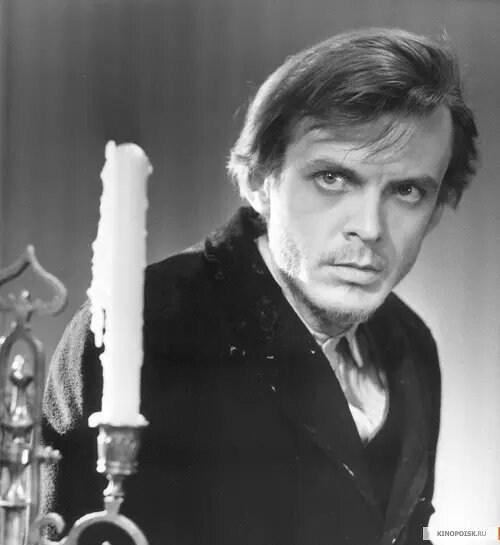
The hero, nervous, is afraid that Alena Ivanovna will notice his strange nervousness and, which is good, will not open the door. Everything, meanwhile, is going according to plan. The pawnbroker examines the package with the alleged cigarette. Rodion realizes: that the decisive moment has come, and he swings for a blow. Raskolnikov killed Alena Ivanovna with the back of the gun. Hitting the victim again, the hero realized that the woman was dead.
Raskolnikov searched the old woman, confiscating a bunch of keys, with which he went to the woman’s apartment. Chest – filled with money and various valuables. Rodion took as much as possible. However, the young man hears a sound and realizes that the old woman’s sister has arrived ahead of time. Confused, Raskolnikov kills Lizaveta. Horrified by his act, Rodion finds it difficult to control himself. Having washed away the bloody traces, the hero is ready to escape. But the sounds in the pawnbroker’s house indicate that the clients have come. The killer is waiting for the clients to leave. After waiting until the house is empty, the hero leaves. Returning the ax to its place, Rodion goes to sleep.
Part 2
Chapter 1
Rodion overcame a long dream. At three o’clock in the afternoon, the young man woke up. With cheerfulness, the memories of the crime also returned. In fear, the hero checks his clothes for blood stains. Horrified by his misconduct, the hero even forgets about the valuables stolen from the old woman. Remembering the loot, Rodion puts the valuables in a cache, lost in the holey wallpaper of the little room.
Nastasya soon visits Rodion. The guest brings a summons to Raskolnikov: the quarter informs that the police officer is waiting for Rodion’s visit. The hero is worried. There, Raskolnikov is told that only his signature is needed – an obligation to pay rent. Before leaving the police office, Raskolnikov accidentally heard that Alena Ivanovna had been killed. Exhausted by nerves, the hero loses consciousness. The police station thinks that Rodion is unwell, and Raskolnikov goes to his room.
Chapter 2
Rodion is tormented by fears that the crime will be revealed. Reinsurance in case of searches, Rodion hides the stolen goods. A new cache is a stone in one of the deserted courtyards.
Chapter 3
The hero is in a fever for some time. When consciousness returned to the young man, the hero recognized Razumikhin, who was in the room with Nastasya. A mother sends money to her son to pay for a room. Comrade Raskolnikov told a friend that during Raskolnikov’s illness, Zametov from the police officer came here. The man was interested in Rodion’s things.
Chapter 4
Raskolnikov was seized by a feeling of alienation, the abyss formed between him and society, the environment. A friend of Rodion’s, Zosimov, who worked as a doctor, came to inquire about Raskolnikov’s health. The guest told the young man that the death of Alena and Lizaveta was a complicated matter, there were many suspects. Among them is Mikola, a house painter. However, there is no evidence against the painter.
Chapter 5
Here Rodion is visited by Luzhin, who is about to marry Dunya. The guest is surprised by the poverty of Rodion’s housing. The hero meets Peter extremely inhospitably. The young man accuses Luzhin of selfish motives, that Peter wants to reward his sister with guilt and gratitude, to make Dunya, thus, dependent on him as a benefactor. Luzhin disagrees with the bride’s brother. Rodion is angry with Peter and puts the guest out.
Together with Luzhin, the rest of the visitors leave Rodion’s room. Dmitry worries that Raskolnikov’s mind has gone haywire. The comrade also guesses that the young man is hiding something.
Chapter 6
The hero leaves the closet, walking. On the way, the young man looks into the drinking room. Here the student meets with Zametov. In a conversation with a policeman, the hero practically pleads guilty to the murder. The hero thinks about what he would do if he were in the place of the criminal, asking Zametov what actions he, in turn, would perform. The policeman concludes that the interlocutor has a clouding mind.
The young man walks around St. Petersburg. While walking, the thought of suicide comes to the mind of a young man. Raskolnikov had already decided to drown but refused to commit suicide. At the house of the murdered woman, where the hero came, the student is talking with repair workers. They also decide that Raskolnikov has gone mad.
Chapter 7
In this chapter, the hero witnesses the accidental death of Semyon Marmeladov. The tipsy man was crushed by a passing wagon and Marmeladov found himself under the hooves of the horses. Onlookers crowded around the dying man. The victim is still alive and, dying, and asks Sonya to forgive him, finding the last peace in the arms of his daughter. Rodion donates money to organize the funeral of a former official.
The young man gradually feels the recovery. The hero visits Razumikhin. Returning to their place, the hero and Dmitry, who is seeing off his comrade, notice a light in the windows of the room: Dunya and Pulcheria decided to visit Rodion. When meeting with relatives, the young man fell unconscious.
Part 3
Chapter 1
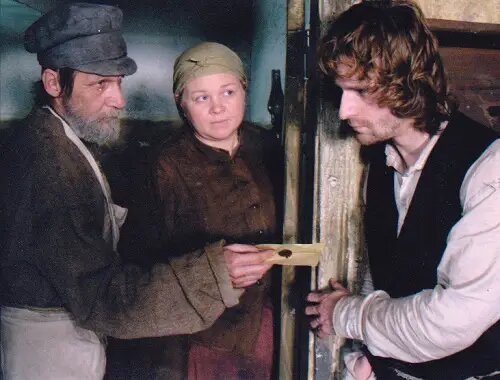
When consciousness returned to the hero, he hurried to calm those close to him who were worried about him. In a conversation with his sister, Raskolnikov speaks in favor of refusing Luzhin and breaking off the engagement. The mother is concerned about the health of her son and wants to be near the young man. But he insists that Pulcheria and Dunya spend the night in a hotel.
Razumikhin feels sympathy for Dunya. Dmitry found the girl beautiful, graceful, strong, and self-confident. These qualities of Raskolnikov’s sister went hand in hand with gentleness and kindness.
Chapter 2
Razumikhin visits Pulcheria and Duna in the morning. Dmitry takes care of his friend’s relatives, having fallen in love with Avdotya. Pulcheria speaks with his son’s friend about Luzhin. In the letter, Peter writes about his intention to come. However, Luzhin expresses his unwillingness to see Raskolnikov. Mother and Dunya eventually come to Rodion’s room.
Chapter 3
Raskolnikov is gradually recovering. Mother and sister visit Rodion and find out that the young man gave the last funds to the family of the deceased Semyon Marmeladov. Raskolnikov notices that his relatives are afraid of him.
Rodion starts a conversation about Luzhin, in which he complains that Peter is not attentive enough to Dunya. Raskolnikov learns about the news from Luzhin. The young man says that loved ones are free to do what is best for them. The young man is ready to meet his relatives halfway. However, the sister believes that her brother shouldn’t leave when Luzhin arrives.
Chapter 4
Sonechka invited Raskolnikov to attend Semyon’s funeral. The reader will learn details about Sonya’s life. The girl has a bad reputation and, in order not to defame her loved ones, Sonya avoids public contact with them. Despite this, the soul of the heroine is pure and innocent.
Feeling embarrassed and considering herself dirty, Sonya is embarrassed to communicate with her friend’s relatives. But Pulcheria and Avdotya accept the girl. Saying goodbye, the hero’s sister bowed to Sonya: Sonya was embarrassed.
Sonya goes home and realizes that someone is following her. It turned out that the pursuer was Arkady.
Chapter 5
The young man asks Dmitry to arrange a meeting with Porfiry Petrovich, an investigator from the police station who is investigating the murder of two women. The hero asks the policeman what is the procedure for returning things pledged to the pawnbroker. He informed Rodion that for this it was necessary to bring an announcement to the station. The young man also learned that his property was in place.
The hero talks with the investigator about the murder of Alena Ivanovna. The policeman suspects Rodion and he understands this. Meanwhile, the investigator recalls an article once published by Raskolnikov. In the article, the young man outlined the concept of separating people. The first group – “ordinary”, the second – “extraordinary”. People from the second category are talents, geniuses, and creators. The article was called symbolically – “About a crime.” People of the second category are allowed to kill in the name of the common good. They are the leaders, and the “ordinary” ones are the followers.
Porfiry Petrovich is interested in whether Raskolnikov considers himself to be one of the leading people, whether Rodion would go for murder or robbery, guided by some higher goals or ideas. Raskolnikov replied that he considered it possible.
The police officer learns from the young man the details of the last time he visited the deceased. To the question of whether Rodion remembers being a house painter, Razumikhin answered for a lingering comrade that Raskolnikov did not see the workers, because he went into the house of Alena Ivanovna three days before the death of the pawnbroker. The painters were painting the house on the day the old woman died. After answering the investigator’s questions, the friends leave the building of the police officer.
Chapter 6
Approaching the house, the hero came across a stranger who bowed out, calling the young man a criminal. The man did not give Raskolnikov an explanation.
Rising into the room, the young man came down with a fever. The hero is tormented by dreams in which a stranger comes to the young man, met just now at the house. In nightmares, a stranger leads Rodion to the house of the murdered woman. Raskolnikov imagines that the pawnbroker laughs at the blows with the ax. Trying to escape, Rodion stumbles upon a crowd of onlookers. As a result, the hero awakens. Raskolnikov visits Svidrigailov.
Part 4
Chapter 1
The visit of Arkady did not please Rodion. Svidrigailov ruined the reputation of Raskolnikov’s sister, so the young man feels antipathy for the guest. However, Svidrigailov believes that he and Rodion are similar. The visitor wants to pay Dunya compensation: the late Marfa Svidrigailova left 3,000 for Dunya, but Arkady pays the girl 10,000 for the inconvenience caused. Raskolnikov does not want Dunya to see her former employer.
Chapters 2 and 3
Rodion and Dmitry go to visit Raskolnikov’s relatives. Luzhin has already arrived to see the women. Peter is angry that Rodion came to the meeting. Luzhin refuses to talk about the wedding in Raskolnikov’s presence. The court adviser reproaches the bride for being ungrateful and not appreciating the good deed of Luzhin, who marries a dowry.
In the conversation, the lie of Peter is exposed, who slandered Sonya, saying that Rodion gave the girl the money sent by Pulcheria for sexual services. Raskolnikov’s sister says that she will not choose between Luzhin and her brother. As a result of the quarrel, Dunya asks Peter to leave. Luzhin leaves, disgraced, full of thoughts of revenge on Rodion and Dunya.
Chapter 4
Rodion in despair, seized by loneliness, goes to Sonya Marmeladova. The girl, worried about her fall, “sin”, turned out to be the closest to Raskolnikov, because the young man is also exhausted by guilt for sin. Rodion and Sonya spend time talking. Raskolnikov is worried about the fate of Sonya, who has a stepmother and half-brothers, and a sister around her neck. Marmeladova takes care of the family because, without the help of the girl, the stepmother and children will die of hunger. Rodion worships the suffering of all people embodied in Sonya.
There is a New Testament on the table in Sonya’s room. Dostoevsky draws the reader’s attention to the story of the resurrection of Lazarus. Saying goodbye to Sonya, Raskolnikov says that he will come tomorrow to tell her about the murderer of Lizaveta. The conversation between Sonya and Raskolnikov is heard by Svidrigailov, who was behind the wall.
Chapter 5
Raskolnikov visits the investigator and asks Porfiry Petrovich to return the things. Porfiry Petrovich checks Rodion. Raskolnikov gets nervous and finally tells the policeman to decide whether to find him guilty or not. Porfiry Petrovich does not give Rodion an answer but informs him that Raskolnikov will soon be surprised.
Chapter 6
The investigator told the young man about the surprise waiting for Rodion behind the wall. It turned out to be the painter Mikola, who confessed to the crime. Returning home, Raskolnikov again meets with a stranger who just now accused Rodion of murder. The stranger was sent last time by Porfiry Petrovich, and now the man apologized to Raskolnikov. Rodion felt better.
Part 5
Chapter 1
The beginning of the fifth part is marked by a return to Luzhin. The hero is angry with Raskolnikov because the young man quarreled with Peter and his bride. Luzhin regrets that he did not pay Rodion: the man believes that the money would solve the problem.
Luzhin hatches plans for revenge on Raskolnikov. Persuading Lebezyatnikov to invite Sonya to visit, Peter asks the girl for forgiveness for his absence from Marmeladov’s funeral. Luzhin also hands Sonya 10 rubles. Lebezyatnikov understands that Peter has something on his mind.
Chapter 2
A commemoration for Marmeladov is being held. There were fewer attendees than expected. Raskolnikov also came to the wake. Luzhin, against all odds, also visited the Marmeladovs’ house. Ekaterina quarreled with the hostess, who rented the apartment to the Marmeladovs because the woman invited an unacceptable audience.
Chapter 3
Luzhin slanders Sonya, accusing the girl of stealing. Confused at first, Marmeladova pulls herself together and denies guilt. Then Sonya returns 10 rubles to Peter, which he gave the girl earlier. Katerina, wanting to prove Sonya’s innocence, turns out the pockets of her daughter’s clothes. When a bill of 100 rubles fell out of his pocket, which the girl allegedly stole, Lebezyatnikov realized what Luzhin was thinking. Then the hero says that Peter himself put money into Sonya’s pocket. Rodion also spoke on the side of Marmeladova. Luzhin is angry and threatens to call the police. The hostess drives Ekaterina Ivanovna and the children out into the street.
Chapter 4
Rodion goes to Sonya, doubting whether to confess to the girl in the murder. But Raskolnikov is aware of the need to ease his soul in front of Sonya. The hero tells his girlfriend that he knows the killer, and Lizaveta was killed by accident. Sonya does not blame Rodion but pities the young man.
Sonya loves Raskolnikov and will follow a friend even into exile. Marmeladova is sorry for Rodion. Sonya wonders why the young man went to the murder if he did not use the stolen things. Rodion reports that he dreamed of being like Napoleon. Marmeladova urges Raskolnikov to confess to the murder.
Chapter 5
Lebezyatnikov informs Sonya about the madness that has seized Catherine. A woman rushes down the street, makes children beg, and she beats a frying pan so that the children dance and sing to this “music”. As a result, Catherine dies of consumption.
Svidrigailov volunteers to pay the costs of Catherine’s funeral. Arkady is going to place the children in an orphanage. The man also wants to take care of Sonechka and still transfer the promised 10 thousand to Raskolnikov’s sister. Raskolnikov is surprised by the generosity of Svidrigailov. Arkady tells Rodion that he knows about the content of the hero’s conversations with Sonya.
Part 6
Chapters 1 and 2
Ekaterina Ivanovna is buried. Raskolnikov learns from Dmitry about his mother’s illness.
Porfiry Petrovich speaks of Raskolnikov’s suspicion of a crime. The investigator believes that Rodion should confess to his deed and that the young man is expected at the police officer. Raskolnikov has 2 days to make a decision. However, there is no evidence incriminating Rodion’s guilt.
Chapters 3 and 4
Raskolnikov meets with Svidrigailov. Arkady told Rodion about his wife, about the past, and the crimes committed. The young man found out that Arkady really was in love with Avdotya, but now Svidrigailov is engaged to another girl.
Chapter 5
Arkady, leaving the tavern where he talked with Raskolnikov, goes to Dunya. The meeting takes place in secret from Rodion. Svidrigailov invites Dunya to visit. In the apartment, Arkady tells the girl about the overheard conversation, promising to save Dunya’s brother. The payment is the girl’s love. Dunya cannot leave because Arkady has locked the door. Then, the girl threatens Svidrigailov with a revolver, after which, leaving the gun, she leaves.
Chapter 6
After a trip to drinking establishments, Arkady sees Sonya. Svidrigailov tells the girl that he is going to leave for America. Sonya is grateful to the man for the funeral of her stepmother and for taking care of the orphans. Svidrigailov wants to leave Marmeladova for 3,000 rubles so that Sonya can start a normal life. At first, the girl does not agree to take the money, but Arkady says that he knows about Sonya’s love for Raskolnikov. Rodion is waiting for hard labor, and the money there will not be superfluous.
Dear fans of Fyodor Dostoevsky’s creativity! We suggest that you familiarize yourself with the image of Sonya Marmeladova in the context of “Crime and Punishment”
Arkady spends the night in a hotel room. At night, a man has a nightmare: this is a memory of the death of a girl who died through the fault of a man – from unhappy love. Svidrigailov commits suicide, unable to bear the feeling of guilt.
Chapter 7
Rodion sees his family say goodbye. Raskolnikov is about to confess to the crime. Only reconciliation with a conscience will help the hero start life from scratch.
Chapter 8
Rodion came to Sonya. The girl gave the young man a cypress cross. Raskolnikov kisses the ground, puts on a cross, and aloud calls himself a murderer. After that, Raskolnikov goes to the investigator, where he confesses to committing a crime. In this chapter, Rodion becomes aware of Arkady’s suicide.
Epilogue
Chapter 1
The punishment for Rodion is 8 years of hard labor. Faithful Sonya follows her lover to Siberia. Pulcheria, the mother of the hero, suffers from a mental cloud. Razumikhin and Dunya take the woman away from the city. Pulcheria lives under the illusion that her son is traveling.
Razumikhin marries his comrade’s sister. After 5 years, the newlyweds are going to move to Siberia. Pulcheria died suddenly, longing for Rodion. Sonya supports her lover and writes letters to Raskolnikov’s relatives.
Chapter 2
Raskolnikov does not get along with the other prisoners. Meanwhile, Sonya fell in love with the convicts. Rodion is considered a godless person. In hard labor, Rodion thinks a lot about the meaning of life, the role of fate, and guilt and conscience. The hero comes to remorse. Raskolnikov regards his life as ruined, and Arkady, who managed to commit suicide, seems to the hero a strong personality.
Dear book lovers! We bring to your attention a summary of the work “Notes from the Underground” by Fyodor Dostoevsky.
Rodion was crippled by illness. Recovery is hard for a hero. Only now does Raskolnikov puts up with Christianity, accept God and realize that he loves Sonya.
Raskolnikov’s personality as the center of the plot
The plot lines of the characters of the work unfold around the former student Rodion Raskolnikov. He hatches the idea of a crime – the murder of the old money-lender Alena Ivanovna.
Rodion Raskolnikov came up with a theory according to which he divided all people into “trembling creatures” and “great people”, and allowed the criminal to act “in conscience”, for the benefit of others. He wondered what category to put himself in. Dostoevsky describes the brutal crime in detail, emphasizing its inhumanity and unnaturalness. Having committed a serious offense, Raskolnikov not only did not help people in need but also introduced an evil inclination into the world. One crime leads to another. Raskolnikov is forced to kill the pregnant Lizaveta, sister of Alena Ivanovna, and hide the stolen funds. But the hand will not rise to use them.
After the crime was committed, Raskolnikov is waiting for the most terrible punishment – pangs of conscience, comprehension of his terrible deed, and as a result – repentance.
Where does the strange theory come from? Why does it originate in Raskolnikov’s brain?
The reason lies in the beggarly existence of Rodion. Raskolnikov cannot provide normal food and is not able to pay for housing and tuition at the university. His mother Pulcheria Alexandrovna and sister Avdotya Romanovna also experience constant financial difficulties. Dunya, for the sake of material wealth, is ready to marry an unloved person. Despair and hopelessness give rise to a terrible idea of atrocity.
New characters enter the novel gradually. They contribute to better disclosure of the internal struggle and essence of the protagonist. Dostoevsky introduces the antipodes of Raskolnikov and his counterparts.
Raskolnikov meets Sonya Marmeladova – a quiet, timid girl who is forced to earn a living for her family by prostitution. Sonya is the daughter of Semyon Zakharovich Marmeladov, a former titular adviser, and a degraded alcoholic. She is a deeply religious person, Christian-kind, sincere, and simple, helping Raskolnikov to return to the true path. Another person supporting the protagonist is his university friend Dmitry Prokofievich Razumikhin.
Pyotr Petrovich Luzhin and Arkady Ivanovich Svidrigailov are wealthy people. Luzhin is a lawyer and an enterprising businessman. Benefit for him above all. For her sake, he is ready for any meanness. Svidrigailov is a landowner, a nobleman who commits crimes to amuse his pride and assert himself. Luzhin and Svidrigailov are Raskolnikov’s twins. They embody the principles that Raskolnikov’s theory speaks of, they cross the line of permissibility, commit meanness, and crimes, and bring suffering to people. But such a life leads the heroes to a dead end. This way of life is wrong and wrong.
Sonya’s influence on Rodion
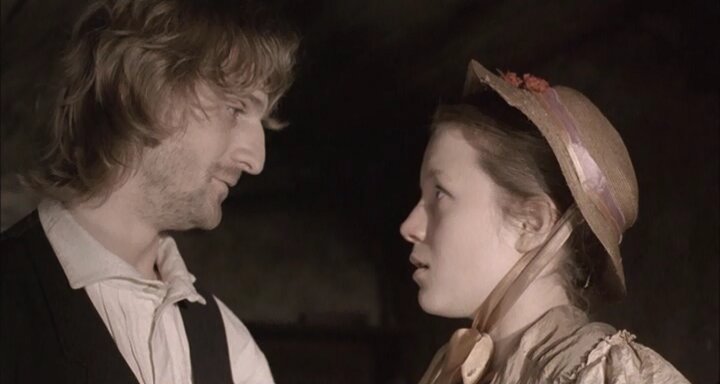
Sonya is the antipode of Raskolnikov. Despite the “physical dirt”, Sonya is morally pure. Suffering strengthens her soul. Sonya is also “criminated”, so she understands Raskolnikov and his condition. She leads him to read and accept the gospel, the cross.
Raskolnikov accepts suffering in the name of atonement for his guilt. But it does not fully revive immediately. For a long time, he believes that he is just a “trembling creature.”
Exhausted by remorse and mental anguish, Rodion Raskolnikov sincerely repents before himself and God for the crime he has committed. He confesses to the investigator Porfiry Petrovich. And now he is already receiving an official punishment in the form of eight years of hard labor.
The main idea of the work
Critics call the novel by F. M. Dostoevsky “Crime and Punishment” an ideological novel. People’s ideas, worldviews, and theories collide in it.
The main and main idea of the work is the need to live according to the Laws of God, putting Christian values at the forefront. Humility, selflessness, love – these are the postulates for every person.
Raskolnikov’s crime is a rebellion against the social injustice of life, which gives rise to painful theories. Raskolnikov commits a crime, seeing the suffering of the people around him. He allowed himself a crime “according to his conscience”, believing that by depriving the old money-lender of her life, he would do a good deed. But in the future, the overthrow of Raskolnikov’s theory occurs. She is crashing. From the lips of the hero sounds the phrase that he killed himself, having committed a serious offense.
Through love for Sonya Raskolnikov, the world of Christian moral values opens up, he is resurrected to life. In contrast to Raskolnikov’s theory, the religious idea of atonement for sin through suffering arises in the novel.
The theme of the work was the image of the inhuman existence of ordinary people, hopeless poverty, and humiliation. The questions posed in the novel are eternal.
Analysis of the work
“Crime and Punishment” is a philosophical and moral-psychological novel. The object of the image in it is the inner world of a person, his comprehension of the meaning of life, questions of morality, and knowledge of the psychology of the individual.
Dostoevsky’s heroes have their voice, their view of life, and their place in it, and they carry a certain idea. It can be traced in Raskolnikov, Sonya, Marmeladov, Luzhin, and in other heroes. Therefore, the novel is also called polyphonic, polyphonic.
The author in the novel is not above the hero, but next to him. The hero is important to Dostoevsky from the point of view of his attitude to the world: what is the universe for him, and how does he sees himself in this world? Therefore, reality in the book appears through the prism of Raskolnikov, and not through the eyes of the author.
The polyphonic novel is Dostoevsky’s innovation in the field of the genre in literature.
Compositionally, the novel is divided into two parts. Crime and its causes – the first part. The second is punishment. The crime is described in the first part of six. In the remaining five – the psychological punishment of the hero.
The exposition is the preparation for the crime in the first six chapters of the first part. The author introduces readers to the main character, the world of St. Petersburg, and the main characters. The main thing in these chapters is not the depiction of nurturing the idea of a crime, but what happens in Raskolnikov’s soul, his experiences, doubts, and thoughts before the murder for two days.
The plot of the novel is the very offense of Raskolnikov. In the first part of the seventh chapter, Rodion kills Alena Ivanovna, and Lizaveta, and lurks in an empty apartment. When he returns home, he hides the murder weapon – an ax.
The Double of Fyodor Dostoevsky Is sure to read the story of Fyodor Dostoevsky’s “The Double”, which reveals the theme of the cruelty of society, which can unsettle an objectionable person.
Dostoevsky’s own bitter experience of a short-term passion for gambling with the ensuing financial difficulties prompted Dostoevsky to write the novel “The Gambler”.
The development of the action is observed in the second-sixth part of the work. For six days the main conflict develops, tension increases, and many events, dialogues, and meetings take place. But the author is still primarily interested in what is happening in the soul of the criminal: how events affect the psychological state of the hero.
The climax is psychological. On the one hand, this is Raskolnikov’s confession to Sonya that he killed in part five, chapter four. On the other hand, Raskolnikov’s appearance before the investigator and the admission of his guilt is in part six, chapter eight.
In the epilogue, the protagonist is depicted, a few years later, in hard labor in Siberia, after a serious illness. Here Raskolnikov embarks on the path of true and deep repentance and spiritual rebirth.
The novel by F. M. Dostoevsky “Crime and Punishment” is a work in which the author embodied innovative ideas.
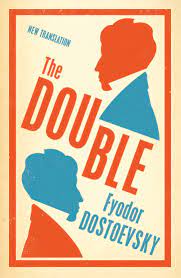
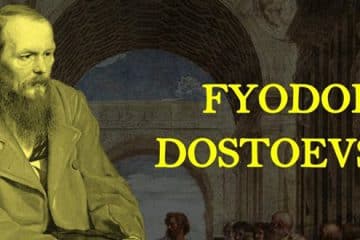
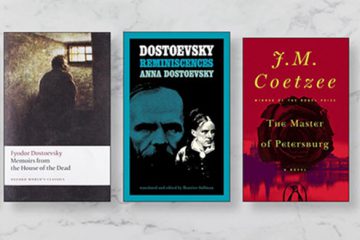


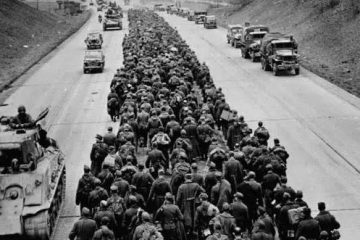
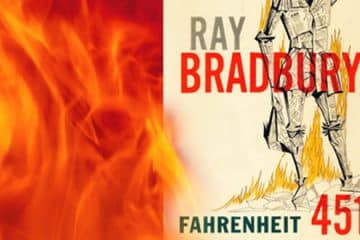
We are currently conducting forensics classes during which we study the suspect’s train of thought and his subsequent actions in order to establish a true picture of the incident. A mandatory task for studying this topic is the study of this novel. I would like to add that Dostoevsky very beautifully and insightfully describes the behavior of the person guilty of murder and the path to repentance.
Evolutionary development of the killer. Psychological confession is what makes a person burst out. Before us appears a young man who, at the beginning of the story, has behind him only a pile of debts and a desperate situation, which pushes him out of desperation to murder. And then, throughout the entire work, we dive deeper and deeper into the depths of Rodion’s human soul. Even under such difficult circumstances, the evolution from an animal to a soul capable of repentance, which every person has, is shown.